Financial institutions face high compliance costs that vary inversely with their size. Non-compliance can lead to severe consequences, including hefty penalties and operational disruptions. RegTech solutions, leveraging AI, ML, blockchain, and NLP, offer potential efficiency gains and risk mitigation, but adoption is hindered by technical complexities, integration challenges, cultural resistance, diverse fraud monitoring systems, skill gaps, and data privacy concerns.
Financial institutions bear substantial compliance costs, varying inversely with their size. However, failure to comply with the regulatory requirements also has serious and multifaceted consequences for banks and other financial institutions that can affect their financial stability and reputation.
These include but are not limited to hefty penalties, operational disruption, litigations, increased scrutiny, loss of business opportunities, etc.
In recent years, Regulatory Technology (RegTech) for the financial services industry has rapidly evolved and become a crucial component for financial institutions. It helps financial institutions manage their regulatory, compliance, and monitoring controls using technologies, such as AI, ML, blockchain, NLP, etc. RegTech solutions can increase efficiency and mitigate risks while reducing the cost of compliance.
However, despite its potential, several key challenges hinder financial institutions from adopting RegTech solutions.
6 Challenges in RegTech Adoption in Banks and Other Financial Institutions
Below are some key hurdles that hamper the adoption of RegTech solutions in financial institutions.
1. Technical Complexity
The adoption of RegTech requires standardization of data, recording, storage, and management systems. Cooperation between jurisdictions, standardization of IT infrastructure requirements, and harmonized definitions of key reporting concepts are also crucial to drawing meaningful insights and ensuring the efficiency of these systems.
2. Integration Challenge
Integrating RegTech solutions with legacy systems in financial institutions is complex and costly. These systems are often outdated, making them incompatible with the latest RegTech solutions, which leads to integration challenges.
3. Cultural Shifts and Barriers
The implementation of RegTech in financial institutions faces challenges rooted in cultural shifts and resistance to change. Employees accustomed to traditional methods may view new technologies as disruptive and raise their concerns about job security.
4. Fraud Monitoring Systems
Current Anti-Money Laundering (AML) procedures and fraud monitoring systems vary widely. There is a pressing need for coordinated or centralized surveillance and more industry collaboration on analytics to identify and share suspicious transactions reporting customer information for more effective AML/CTF and sanction compliance.
5. Talent and Skill Gap
Implementing RegTech is a complex process that requires significant resources, technologies, and skills. The lack of technical expertise and skills in banks and financial institutions, especially among compliance professionals and regulators, in understanding and operating these technologies can lead to misinterpretation and ambiguity.
To overcome this, financial institutions can consider investing in eLearning solutions, such as Fluent, for agile and rapid workforce training and applying the problem-oriented approach to encourage partnership between people with different skill sets and out-of-the-box thinking.
6. Data Privacy
While adopting or implementing any compliance technology solution, financial institutions must prioritize client data confidentiality and security while storing and transferring the data. They must comply with data protection laws and regulations, such as the California Consumer Privacy Act (CCPA), with robust data security measures to protect sensitive information. However, these regulations vary based on the jurisdiction.
Embrace RegTech to Enhance Regulatory Compliance
RegTech will play a pivotal role in shaping the future of regulatory compliance in the financial services industry. Therefore, addressing the challenges in the adoption of RegTech is crucial. It will help banks and financial institutions streamline and enhance their compliance processes and address the complexities of the constantly evolving regulatory landscape. However, this requires a more balanced and collaborative effort among various stakeholders to standardize data, processes, and systems, ensure data privacy, and embrace emerging technological advancements.
Anaptyss, as a strategic partner, is helping banks and financial institutions seamlessly adopt and integrate regulatory technology (RegTech) solutions, such as ALFA, to navigate the complexities of a continuously evolving AML/KYC regulatory environment, market trends, and customer expectations.
To learn how ALFA can help your organization ensure financial crime compliance
Reach out to us at: info@anaptyss.com









![CBDCs in Banking: Opportunities and Adoption Approaches [Guide]](https://www.anaptyss.com/wp-content/uploads/2025/01/CBDC-guide-for-banks-150x150.png)


